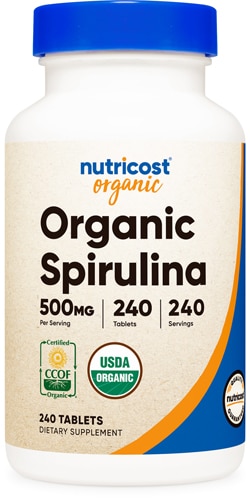[vc_row][vc_column][vc_column_text]Algae often get a bad rap.
Some out-of-control growth of algae produce toxins that can sicken fish, birds, mammals and even humans,
according to National Oceanic and Atmospheric Administration (NOAA). A less-threatening effect: Algae can make it appear as though waterways are polluted.
In most cases, though, algae are harmless. They’re “simple plants” that live in rivers, lakes, ponds, oceans and moist soil,
says the Michigan Department of Environment, Great Lakes and Energy.

The benefits of algae
Now, a new
study promotes algae as a sustainable food source. The study, published in January 2023 in the research journal Frontiers in Nutrition, underscores the value of both macro forms of algae (such as seaweed) and micro forms of algae as a global source of food.
“Current agricultural and food production practices are facing extreme stress, posed by climate change and an ever-increasing human population. The pressure to feed nearly 8 billion people while maintaining a minimal impact on the environment has prompted a movement toward new, more sustainable food sources,” says the study.
The study notes several nutritional benefits of algae:
- Proteins
- Lipids
- Carbohydrates
- Vitamins
- Minerals
- Fatty acids
According to the study, the potent combination of protein, lipids, fatty acids and vitamins “make algae an ideal candidate for expansion into the human diet.”
The study notes that while foods with carbs are in abundance around the world, foods with healthy amounts of proteins and lipids are more scarce. Algae are a source of all three. Some kinds of algae contain protein levels of
40% to 60% and lipid levels of
20% to 50%, both of which surpass some other sources of protein. Lipids include fats, oils and vitamins.
“Although algae have yet to be fully domesticated as food sources,” the study says, “a variety of cultivation and breeding tools exist that can be built upon to allow for the increased productivity and enhanced nutritional and organoleptic qualities [sensory properties] that will be required to bring algae to mainstream utilization.”
How to add algae to your diet
Even though algae are not yet “fully domesticated” as food sources, they can be incorporated into our diets. Here are four ways to add algae as a food source.
Spirulina
This is a blue-green algae that’s chock-full of protein, vitamins, minerals, carotenoids and antioxidants,
according to the Icahn School of Medicine at Mount Sinai.
Spirulina can be found in the form of pills, powders or flakes.
Kelp
This is a large brown seaweed that’s packed with protein, calcium, potassium, magnesium, iron and zinc. Kelp can be consumed raw or cooked, as a powder or in supplements.
Nori
This dark green algae, a dry seaweed commonly found in Asian cuisine, contains loads of protein, vitamins, calcium, iron, magnesium, potassium and zinc. Frequently used to wrap sushi rolls,
nori also is a popular seasoning and snack.
Chlorella
This green algae boasts an abundance of protein, amino acids, antioxidants, vitamins and minerals.
Chlorella is consumed in powder form.
“Algae possess several key features that set them apart from conventional crops in terms of sustainability and production of high-value macronutrients,” says the Frontiers in Nutrition study.
The future of algae as a food source
Despite the many benefits, the study’s authors stress that algae’s widespread adoption as an alternative food source “remains a significant challenge.”
“This will mainly depend on different marketing strategies to inform the public of the health benefits these organisms can provide, as well as using breeding and genetic modifications to increase yield and improve the flavor of algae,” says the study.
“The number of products that can be produced from algae are as diverse as the organisms themselves, which allows algae to be cultivated for these other products while genetically modified algae are debated as a new food source,” the study adds. “In either case, algae clearly have the capacity to contribute to the production of healthier and more sustainable food products in the near future.”[/vc_column_text][/vc_column][/vc_row][vc_row][vc_column][vc_text_separator title="Featured Products" border_width="2"][vc_row_inner equal_height="yes" content_placement="middle" gap="35"][vc_column_inner width="1/3"][vc_single_image image="165973" img_size="full" alignment="center" onclick="custom_link" img_link_target="_blank" css=".vc_custom_1680736052569{padding-right: 7% !important;padding-left: 7% !important;}" link="https://www.vitacost.com/12-tides-organic-puffed-kelp-chips"][/vc_column_inner][vc_column_inner width="1/3"][vc_single_image image="165975" img_size="full" alignment="center" onclick="custom_link" img_link_target="_blank" css=".vc_custom_1680736069372{padding-right: 7% !important;padding-left: 7% !important;}" link="https://www.vitacost.com/zint-organic-spirulina-powder"][/vc_column_inner][vc_column_inner width="1/3"][vc_single_image image="165974" img_size="full" alignment="center" onclick="custom_link" img_link_target="_blank" css=".vc_custom_1680736087678{padding-right: 7% !important;padding-left: 7% !important;}" link="https://www.vitacost.com/natures-answer-chlorophyll-gummies"][/vc_column_inner][/vc_row_inner][/vc_column][/vc_row]




